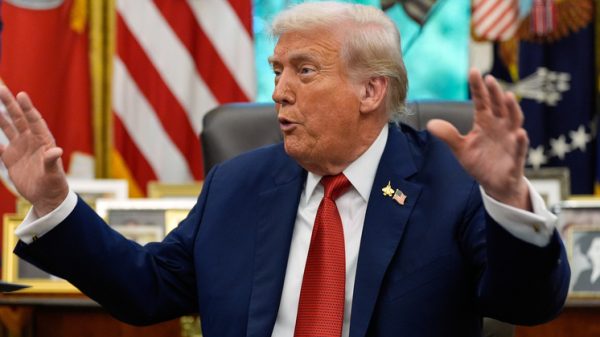
One topic, some say, has been mercifully absent from this election debate: Brexit.
< p> Polls show that voters who struggle to get doctor's appointments and cope with much higher living costs have larger issues to think about.
Meanwhile, both parties There are reasons to keep this topic quiet. After years of squabbling over Brexit, the Tories are keen not to ignite another round of fighting. Sir Keir Starmer wants to reassure Brexit voters they can trust him.
This has led Labor to take a tougher stance on EU integration than in previous years. At the end of April, the party rejected a European Commission proposal to introduce free movement for under-30s.
Sir Keir made clear there was no possibility of rejoining the single market under a Labour-led government. However, many Labor supporters and MPs are likely to expect closer ties to the EU if the party is elected. A survey of city investors shows that almost 90% expect greater integration.
Suggestions that a Labor government will start «dating» with the EU again depend on the scorned former partner being open to resuming the relationship. This is unlikely.
“They spend very little time in Brussels thinking about Britain,” says Anand Menon, professor at King's College London and director of the UK in a Changing Europe programme.
There are political threats, there is migration. There are all sorts of debates going on in the European Union about whether [Ursula] von der Leyen will be reassigned and what to do about the Green Deal. According to him, the UK is not even on the list of priorities.
Items on Labour's EU wish list include a veterinary agreement to avoid import checks on agricultural products such as meat, vegetables and flowers. The party also wants closer cooperation with Brussels on security and defense, with David Lammy attending monthly meetings of the Foreign Relations Council.
Not only is the UK not a priority, there are many people in Brussels who… first and foremost, those still suffering from the insult of Brexit, says Menon. “There is still a feeling in the European Union that what the UK gets cannot be as good as membership.”
Changing political leadership will not help much. “There are people in the Labor Party who think the EU will make concessions just because they are not Conservatives. This is absolutely wrong,” says Menon.
“Anyone who has negotiated with the EU knows full well that the EU does no favors and negotiates based on its own interests.”
He adds: “If Labour's majority is smaller than expected, and if the Conservative Party continues to be largely Eurosceptic, the EU will have less incentive to negotiate with us because there is a danger that a new Conservative government will come in and undo everything.”
There are questions about how the European Parliament elections could affect relations. While European Parliament elections are notoriously difficult to predict due to low turnout, opinion polls indicate a surge in support for far-right parties, with Marine Le Pen's National Rally and Georgia Meloni's Brothers of Italy expected to increase their seats .






















































Свежие комментарии